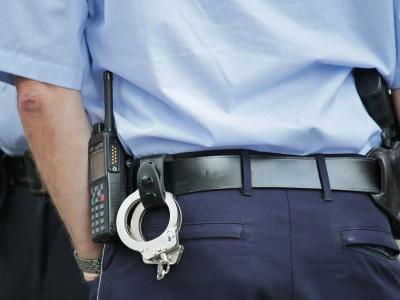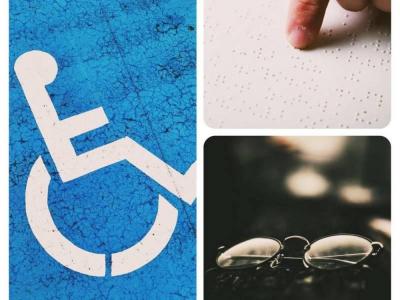Response to the public initiative on the establishment of an Ombudsman for the Rights of the Elderly

As one of the addressees, the Human Rights Ombudsman of the Republic of Slovenia (Ombudsman) received an open letter from the Srebrna Niti Association – Association for Decent Ageing (Association), in which they once again propose the establishment of an independent Ombudsman for the Rights of the Elderly, whose main task would be to comprehensively regulate the area of care for the elderly, improving their situation, protecting their rights, and ensuring a dignified life in old age. In the public letter, the Association assesses, among other things, that the partial and transitional solution, which was suggested several times as the possibility of creating a special department at the Ombudsman or appointing a deputy specifically for this extensive area of care for the elderly, would not be a sufficient and good solution.
Based on the consideration of specific complaints by individuals and the consideration of broader issues that he himself raises on this topic and which are important for the protection of human rights and fundamental freedoms and for the legal security of citizens, as well as many visits to retirement homes and numerous other activities in the field of the elderly, the Ombudsman notes that in Slovenia the protection of the rights of the elderly should be dealt with at various levels. It is necessary to establish a social climate in which it will be unequivocal that the elderly (or other groups or individuals in need) are treated compassionately and helped, and in which an appropriate, dignified and safe age will be the basic principle of society's functioning. Those who come into contact with the elderly in their work should be offered adequate support, education, protection, care, and last but not least, adequate payment and the performance of their responsible work in a safe working environment. Future generations must be systematically and more intensively educated in the spirit of intergenerational solidarity and a sense for their fellow human beings inculcated in them. It is necessary to act preventively, the Ombudsman is convinced.
Over the years, the Ombudsman has constantly, persistently, and decisively called on all competent institutions and state bodies to increase measures and activities to improve the situation in the field of dealing with the issue of the elderly.
V okviru prizadevanj za preventivno delovanje pa je Varuh letos, na podlagi svojih številnih dosedanjih aktivnosti, poznavanja področja varstva pravic starejših in obravnavanja s tem povezane problematike ter v prizadevanjih, da bi se izboljšala kakovost oskrbe starejših in zaščita njihovih pravic, kot enega izmed širših ukrepov v razmislek predlagal tudi vzpostavitev mehanizma ali mreže t. i. zaupnikov starejših, ki bi bili njihov »manjkajoči glas«. Varuh namreč ugotavlja, da starejši pogosto nimajo nikogar, na katerega bi se lahko obrnili v stiski. Zato je v okviru Festivala za tretje življenjsko obdobje pripravil okroglo mizo z naslovom Kako zagotoviti učinkovitejše varstvo pravic starejših – bi bila vzpostavitev zaupnika starejših pravic odgovor? Razprava je dala jasen signal, da kot družba potrebujemo predvsem mehanizem, ki bo na terenu zaznaval posamezne primere ter nanje ustrezno reagiral.
As part of efforts for preventive action, this year, on the basis of his numerous activities to date, his knowledge of the field of the protection of the rights of the elderly, and the handling of related issues, and in his efforts to improve the quality of care for the elderly and the protection of their rights, the Ombudsman also proposed for consideration as one of the broader measures the establishment of a mechanism or network, so-called elders' trustees, who would be their "missing voice". The Ombudsman notes that the elderly often have no one to turn to in times of need. That is why, as part of the Festival of the Third Age, he prepared a roundtable entitled How to Ensure More Effective Protection of the Rights of the Elderly – Would the Establishment of a Trustee for the Rights of the Elderly Be the Answer? The discussion gave a clear signal that, as a society, we primarily need a mechanism that will detect individual cases on the ground and react accordingly
The association Srebrna nit – Association for Decent Ageing also took an active part in the roundtable. The participants concluded that the elders’ trustee mechanism could be the answer to the gaps in guaranteeing the rights of the elderly, but it would be necessary to examine more precisely how and in what way such an institute should be organised – either within the existing structures, by connecting them, by ensuring better coordination, or with a pilot project that would identify specific needs and responses to them.
We are united in society (the roundtable participants were of the same opinion) that the elderly must be taken care of, both in institutional care and in the home environment. The Human Rights Ombudsman assesses that an Ombudsman for the Rights of the Elderly could not comprehensively realise this goal in such a way. Ombudsman institutes are intended to protect the rights of certain groups in relation to authorities, but they cannot protect them if violations occur in the domestic environment. The conclusions of the roundtable show that a mechanism or a network of trustees of the elderly working in the field (and therefore also in the home environment of the elderly) can be the right answer to the needs of the elderly for more effective protection of their rights and that it makes sense to continue activities in this direction. The Human Rights Ombudsman was convinced that the representatives of the Srebrna nit association also agreed with these conclusions.
The Ombudsman is not in favour of establishing a special ombudsman institution for the rights of the elderly. Already last year, the Ombudsman and other authorities, which are strengthening awareness that it is more effective for the Ombudsman to recognise and respect the rights of the elderly, gave the society an explanation on the same initiative in terms of content. It was explained that it is more effective if the Human Rights Ombudsman is responsible for identifying violations and taking into account the rights of the elderly, since as the institution established by the constitution for the protection of human rights and fundamental freedoms in Slovenia, with its given powers, it has a greater opportunity to adequately investigate violations and make recommendations for their elimination. The Ombudsman is also a single national institution for human rights with status A under the Paris Principles, which is recognised as a great advantage in the protection of human rights. Establishing several similar institutions to protect certain groups of the population (e.g. also for children, persons with disabilities, or other vulnerable groups) also makes it difficult to distinguish, in short, it can cause confusion and thus make it difficult to protect those who need it. Strengthening the awareness that it is more effective if the recognition and consideration of the rights of the elderly is carried out by the Ombudsman is all the more important with the awareness that the Ombudsman does not derive his power from official action, but from his reputation and already recognised position in society.
The Human Rights Ombudsman of the Republic of Slovenia reports on his work and findings on the level of respect for human rights and fundamental freedoms, as well as on the legal security of citizens, to the National Assembly in regular annual or special reports. In his annual reports, he devotes a very special chapter to the elderly as a vulnerable group, and in it he draws particular attention to the recommendations he has made that are related to improving the situation of the elderly.
The Ombudsman therefore pays special attention to the protection of the rights of the elderly and responsibly strives to protect them both through specific complaints and when addressing challenges at the systemic level. He will continue to actively strive to ensure that solving the problems of the elderly is high on the priority list of all competent authorities. Civil society is always a valuable source of information for the Ombudsman about violations, perceived irregularities, and wider issues, so the Ombudsman is always happy to receive constructive suggestions.












 Back
Back 






